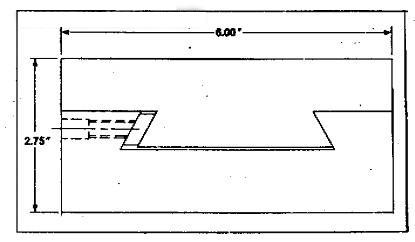Comparison and analysis of various machine tool guides (5)
Other forms of rail
Another type of guide rail commonly used on machine tools is the dovetail guide rail, which is generally used for positioning of moving parts of machine tools. For example: the tailstock of the turning center, the rail system can move the tailstock over it or move it to the desired position to support the part being machined and then quickly clamp it. Many accessories for machine tools, such as positioning table, rotary table or rotating shaft, also use dovetail guide rail as positioning component. Then clamp it to the desired position. If the reciprocating stroke of the machine is long, the V-shaped guide soft is used, such as a surface grinder and a planer. The advantage is that the V-rail system is well guided and can withstand gravity cutting. Some adopt a combination of a V-shaped guide rail and a flat guide rail, a V-shaped guide rail serves as a guide, and a flat guide rail serves as a support body.

Figure 4
In order to ensure the life of the rail system. Maintenance is critical. The guide rail is one of the precision parts of the machine tool. It is impossible to have 100% dust protection and dust pollution. Therefore, users should check and maintain regularly. Hydraulic flat guides are generally self-lubricating and the media itself is a lubricant. Linear guides and linear roller guides require regular lubrication. Many steel ball and roller sections of linear guide systems are fitted with grease fittings that are attached to the bracket. Some are connected by conduits to make grease lubrication more convenient, and some are equipped with automatic lubrication accessories. Regardless of the type of rail system used, maintaining good lubrication of the rolling elements can reduce wear on the rail system and extend the holding time of the machine.
Previous page